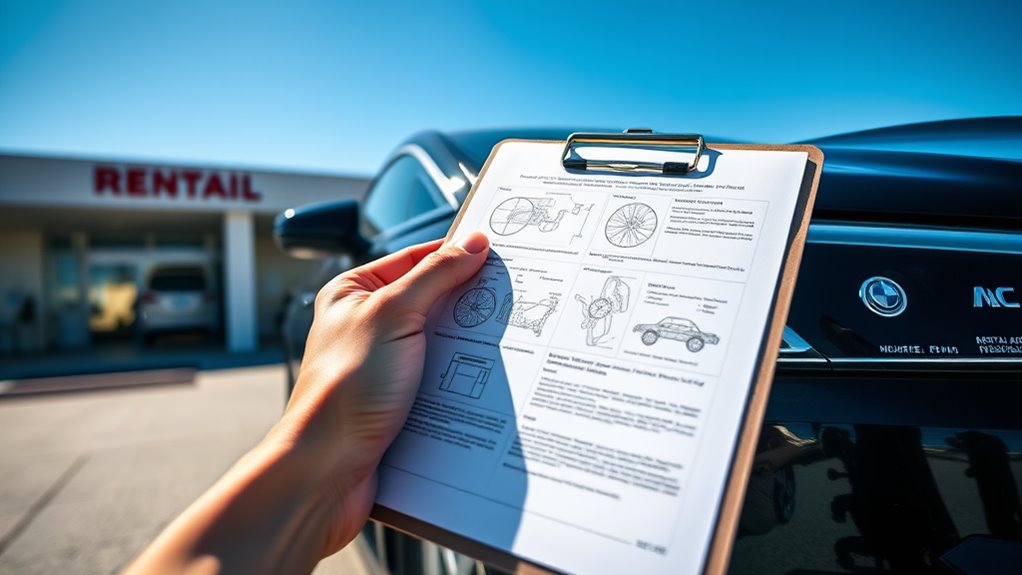Steering through the world of non-owner car insurance can feel like driving without a map. While this policy offers some protection, it leaves significant gaps. Key exclusions include collision and extensive coverage, meaning you won't be compensated for damage to the vehicle you're driving. Furthermore, losses from theft or vandalism are not covered. Understanding these limitations is essential, especially if you're relying on this type of insurance for your driving needs. What else might you be missing?
When you assess non-owner car insurance, it's crucial to understand the exclusions that could impact your coverage. This type of insurance primarily protects you when you drive vehicles you don't own, but it comes with significant limitations. For example, extensive and collision coverages aren't part of non-owner policies, which means you won't receive compensation for damage to the vehicle you're driving or for losses due to events like theft or vandalism. If you're involved in an accident, your non-owner insurance won't cover the repairs to the car you're driving; you'll need a separate policy for that.
Moreover, you won't receive rental reimbursement, meaning if you're in an accident and need a rental vehicle, you'll have to cover those costs out-of-pocket. Towing coverage is another exclusion; if the vehicle breaks down and needs to be towed, you'll be responsible for those expenses as well. This limitation can be particularly burdensome if you frequently borrow vehicles or rely on rentals, as you'll need to reflect on how to manage those scenarios without the safety net of this insurance.
Rental reimbursement and towing coverage are excluded from non-owner car insurance, leaving you to handle those costs yourself.
There are also policy type exclusions that you should be aware of. Non-owner policies typically don't include additional vehicle-related services, such as roadside assistance, which can be essential in emergencies. You won't have coverage for physical damage to the vehicle you're using, and loan or lease payoff provisions don't apply since there's no owned vehicle involved. Additionally, gap coverage is absent because this insurance isn't designed for financed vehicles. Non-owner car insurance generally does not cover any damage incurred to the vehicle being driven, making it critical to evaluate your options before you get behind the wheel.
Geographical limitations may also affect you. Non-owner car insurance might only cover specific states, and if you travel outside those areas, you could find yourself without coverage. If you're planning to drive internationally, be aware that this insurance generally won't extend beyond the country where it was issued. Special exclusions may apply if you're using military or government vehicles, so you'll want to clarify those points if relevant.
Demographic and situational exclusions could also mean non-owner insurance isn't right for you. If you rarely drive, you might find that the costs outweigh the benefits. Similarly, if you frequently borrow vehicles from household members, those vehicles are likely covered under their own policies, leaving you exposed. Situational changes, such as moving or becoming a more frequent driver, could warrant a reevaluation of your insurance needs.
Lastly, the insurance process itself comes with exclusions that can complicate obtaining coverage. You may find that online quotes are limited, requiring you to reach out to an agent directly. State registration requirements mightn't apply to you, and if you need an SR-22 form, you'll need to check state-specific regulations.
Regarding healthcare and personal injury coverage, be aware that protections may not be included in your non-owner policy, necessitating additional coverage for complete protection. Understanding these exclusions is important to ensuring you're adequately protected on the road.
Conclusion
In conclusion, while non-owner car insurance offers a safety net for occasional drivers, it comes with significant gaps. You won't find coverage for collisions or theft, leaving you vulnerable to unexpected expenses. Benefits like rental reimbursement and roadside assistance are also absent, which can prove inconvenient. Ultimately, understanding these exclusions is essential; you need to weigh the peace of mind it offers against the potential financial pitfalls. Make informed choices to guarantee you're adequately protected on the road.








